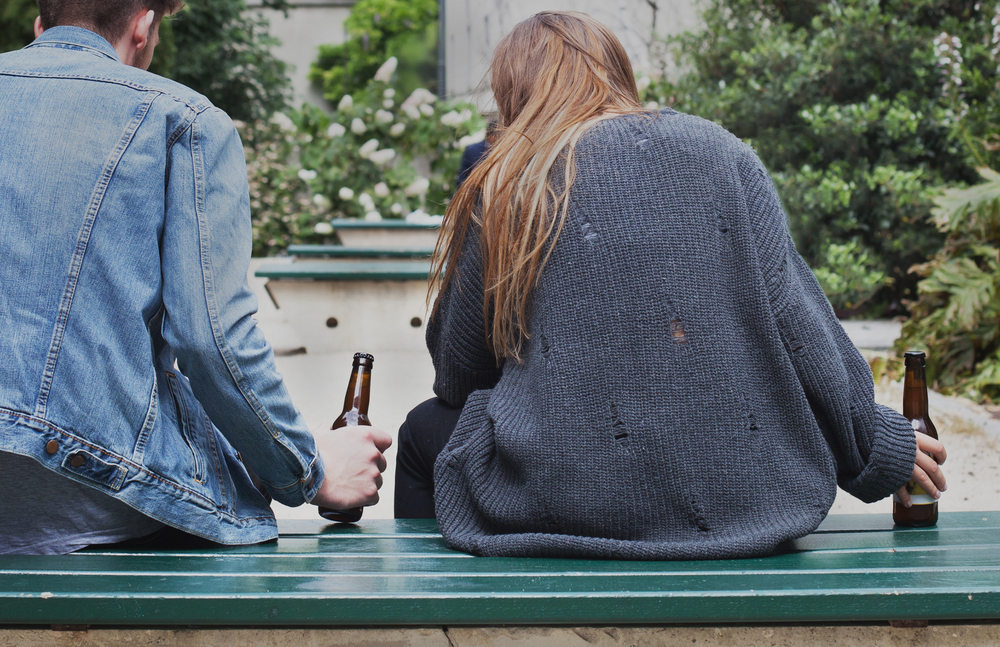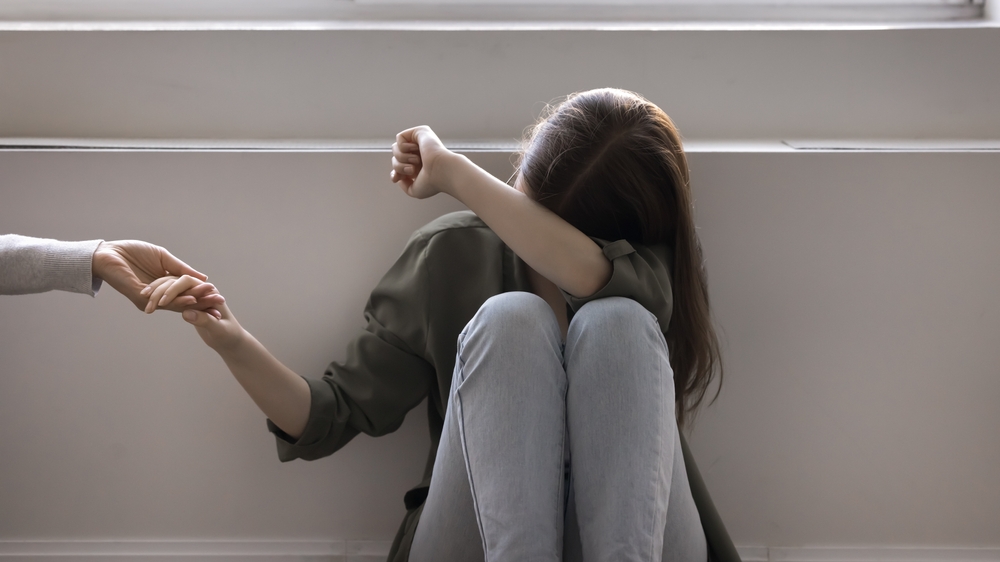Last Updated:
September 18th, 2025
Adolescent years are well known for being fraught with a certain amount of risk-taking and experimentation, yet addiction can take hold faster than anyone realises. Seeing traces of addiction in an adolescent can be enough to break the heart of the person caring for them.
More than 12,000 young people (under 18) contacted alcohol and drug services in 2024 alone, up 10% from the previous year. Figuring out a solution for this increasing number is paramount for safeguarding the health of young people in our country.
This help guide gives you signs to watch for that an adolescent’s relationship with drugs or alcohol is spiralling, as well as ways you can help them before addiction takes a deeper hold.
How many adolescents are affected by addiction?
Adolescent addiction is more common than many of us first contemplate. According to the NHS Digital Smoking, Drinking and Drug Use Report (2023), 13% of pupils reported they had ever taken drugs. 37% of those children said they had ever had an alcoholic drink, with 5% saying they usually drink alcohol at least once per week.
Cannabis remains the most common substance that young people in the UK begin treatment for (87%). There are also some alarming signs of an increase in young people needing treatment for solvent misuse, climbing from 2.9% to 5.1% in 2023.
Without proper guidance, how can we expect the leaders of tomorrow to be at their strongest, healthiest and most sound-of-mind? Understanding the scale of the problem can help us approach it with the seriousness it deserves. It will not benefit us to address the problem with scorn, anger, or blame, as that so often leads an adolescent to retreat further from the help they need.
Why might an adolescent develop a substance addiction?
Adolescents are not immune to the risk factors that influence adult addiction; in fact, they may be more vulnerable to them. Teenage brains are still developing, especially in areas tied to impulse control and decision-making, both of which increase the propensity for risky behaviours and addiction to take hold.
However, the contributors to adolescent risk-taking are rarely straightforward. Already, there are academics in the scientific community who highlight the lack of research on antecedent predictors of early alcohol use. There is rarely one single factor for the propensity of adolescent drug taking, with both nature and nurture or “psycho-social” forces affecting them. There may indeed be both alcohol-specific parenting and non-alcohol-specific parenting influences in the likelihood of substance use in an adolescent:
- Alcohol-specific parenting influences include the modelling of parental drinking behaviour. This also involves the conversations a parent has with the child and other critical aspects of the parent-child relationship, even in adolescence.
- Non-alcohol-specific parenting involves other parental behaviours that contribute to a child’s likelihood to try alcohol or other drugs. Research shows that “inadequate parenting” and the promotion of aggressive or anti-social behaviours sharply increase the likelihood of child alcohol addiction.
Recognising the signs of adolescent addiction
With such a broad spectrum of potential contributing factors to adolescent addiction, it may become more important to make sure you can recognise signs as they appear. Teenagers are often incredibly hard to read, feeling like one moment they’re open, the next sealed completely shut.
Whether it’s your child or an adolescent you know, some of the more straightforward signs may include, but are not limited to:
- Bloodshot eyes, or the smell of alcohol or drugs on their breath or body
- A withdrawal from the healthy social activities they usually like
- Hangovers during (or avoidance of) family or social get-togethers
- Talking about their desire to cut down the amount of alcohol/drugs they use
These signs are apparent in both adults and adolescents, so now let’s look more closely at teenage-specific signs of alcohol or drug dependence:
Problems at school or college
Most children up to the age of 18 spend the majority of their time in educational systems. This can mean that changes in the way a child feels about a teacher or a decline in the quality of schoolwork may indicate that a problem is developing.
As part of the teenage process, it’s understandable that they sometimes get frustrated about school or college, seeing it as their 9 to 5, without it paying them. A stressed-out adolescent may return home from school or college and have their feelings dismissed by their guardian. They may feel that nobody truly understands them and a growing sense of alienation develops. This can have a direct relationship with alcohol use, which invariably has an impact on their attendance at school and the relationship they have with their teachers.
Rapid changes in the relationship norms
If the troubled adolescent in question is your child, you may notice marked and rapid changes in your relationship with them. Of course, teenage years are notoriously rebellious, as they seek to find and sometimes step over the lines of what’s allowed and what isn’t.
Nobody understands a child better than their own parents, as you are there for them at every stage of their development. However, if your child becomes unusually secretive or defensive about their social life or habits, it may be pointing to a deeper issue. A sudden dip in interest towards previously enjoyed activities may also be a red flag.
Of course, not all changes mean drugs are involved, but making an adequate amount of space for their behavioural change and communicating with them will be the key to learning what’s really on their mind.
Behavioural similarities to addicted family members
While no one is born inheriting an addiction, genetics and the environment have a profound influence, with studies showing as much as half the risk for alcohol use disorders (AUDs) is inherited.
Children and adolescents will absorb the behaviours and attitudes of those around them. You might notice your child echoing certain habits that remind you of a relative who struggled with an addiction. Patterns may be subtle and highly unique to your family, perhaps even mimicking a relative they’ve never met, whom you know of. Trust your instincts if something feels familiar in a troubling way.
How can I open the conversation?
Seeing an adolescent with an addiction can be extremely heartbreaking. If they’re your child, one immediate response might be to seek blame in yourself. It’s important not to succumb to blaming yourself entirely, as this might make both yourself and your child feel like the problem is insurmountable and so, give up on helping. That’s the last thing your child needs.
If you feel like you and your adolescent are ready, a difficult conversation may be needed. Here are some useful things to keep in mind before you open the door to a sensitive topic:
- Be sensitive and don’t jump to conclusions: Start from a place of concern, not confrontation. Teenagers often strive to have their feelings heard and use descriptive ways to express them.
- Use “I” statements to show empathy: Try phrases like “I understand you’re going through a rough time, but I’m really concerned about you.” This keeps the focus on your concern rather than their faults.
- Be honest about your limitations: It’s okay to say you don’t have all the answers. Let them know you’ll stand beside them. With professional support, you can both figure out the next steps together.
These conversations may not go perfectly, which is okay. The most important thing is showing up with love, patience and the willingness to keep trying.
I need help removing alcohol from my child’s life
Supporting a child through addiction can be one of the most emotionally draining experiences a parent or carer ever faces. But you don’t have to carry that weight alone, and neither does your child.
At Liberty House, we offer comprehensive, age-appropriate addiction support designed to meet adolescents where they are. From detox to therapy to long-term aftercare, our programmes are built to uncover the roots of addiction while developing strength and trust for complete recovery.
Whether you’re ready to take action or still unsure what help looks like, we’re here to listen without judgement and guide you forward. Reach out to us today to take the first step towards healing your loved one.
(Click here to see works cited)
- “Young People’s Substance Misuse Treatment Statistics 2022 to 2023: Report.” GOV.UK, www.gov.uk/government/statistics/substance-misuse-treatment-for-young-people-2022-to-2023/young-peoples-substance-misuse-treatment-statistics-2022-to-2023-report
- Smoking, Drinking and Drug Use among Young People in England, 2023 – NHS England Digital, digital.nhs.uk/data-and-information/publications/statistical/smoking-drinking-and-drug-use-among-young-people-in-england/2023
- Donovan JE, Molina BS. Childhood risk factors for early-onset drinking. J Stud Alcohol Drugs. 2011 Sep;72(5):741-51. doi: 10.15288/jsad.2011.72.741. PMID: 21906502; PMCID: PMC3174021.
- White HR, Johnson V, Buyske S. Parental modeling and parenting behavior effects on offspring alcohol and cigarette use. A growth curve analysis. J Subst Abuse. 2000;12(3):287-310. doi: 10.1016/s0899-3289(00)00056-0. PMID: 11367605.
- Jacob T, Johnson S. Parenting influences on the development of alcohol abuse and dependence. Alcohol Health Res World. 1997;21(3):204-9. PMID: 15706770; PMCID: PMC6826805.
- Tawa EA, Hall SD, Lohoff FW. Overview of the Genetics of Alcohol Use Disorder. Alcohol Alcohol. 2016 Sep;51(5):507-14. doi: 10.1093/alcalc/agw046. Epub 2016 Jul 21. PMID: 27445363; PMCID: PMC5004749.






